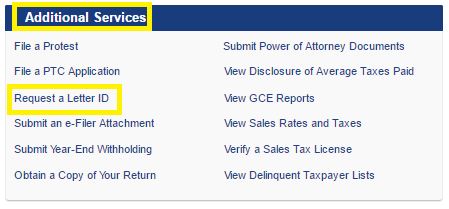
Join Elizabeth Lewis at a Free Seminar on Legal Issues at Denver Startup Week!
Join Elizabeth Lewis at a Free Seminar on Legal Issues at Denver Startup Week!
Join Elizabeth Lewis at Denver Startup Week!
Are you going to Denver Startup Week? If so, make sure to join me and an awesome panel as we discuss legal issues for start ups. Information is as follows:
Legal Roadmap for Startups
Monday 9/25/17 12:00pm—2:00pm
WeWork Union Station 1550 Wewatta St.
This session about business basics is for new, small, or expanding businesses. With a panel of startup lawyers, topics include corporate structure, vesting and related documents, contracts, intellectual property, and confidential information that every founder should be aware of when starting or growing a business. In addition to me, Tricia Meyer of Meyer Law and Jeffrey Schell of Rocky Mountain Patent will also be on the panel.
If you can’t make it to my panel, make sure to make it to other events. Denver Startup Week is a massive – FREE – summit unmatched in size and caliber, Denver Startup Week (DSW) celebrates entrepreneurial energy, innovation, and connection. Each day offers premium sessions in tech, design, DIY-making, marketing, and leadership, presented by experts and distinguished guests from the local community. The mission of Denver Startup Week is “to foster an environment where every member of a team, in every industry, can come to learn, grow, and prepare for their next challenge.”
Reflecting the rich diversity of Denver’s startup community, the summit incorporates useful and meaningful programming to spark ideas and solutions for improving skills, product, process, approach, or project. Each year, DSW adds more to its impressive roster, which includes several different tracks, clusters, expos, socials, and tours throughout the week.
Tracks Offer Business Advice by Team Member
Tracks cover functional roles within a startup team and give valuable insights for your career and success. For example, if you are a founder, you may want to check out a session from the Founder Track:
Session Sample – Founder Track
Legal Roadmap for Startups
Monday 9/25/17 12:00pm—2:00pm
WeWork Union Station 1550 Wewatta St.
This session about business basics is for new, small, or expanding businesses. With a panel of startup lawyers, moderated by Tricia Meyer of Meyer Law, topics include corporate structure, vesting and related documents, contracts, intellectual property, and confidential information that every founder should be aware of when starting or growing a business. Panelists include Elizabeth Lewis of the Law Office of E.C. Lewis and Jeffrey Schell of Rocky Mountain Patent.
Find a Track that Meets Your Colorado Business Needs
- Designer
The designer track focuses on the critical elements of design – from fashion to architecture to breakout digital design and artwork. Come learn from designers responsible for some of the best projects in Colorado. - Developer
Learn new technologies, refine your skills, or just check out something completely different in this track. - Founder
Whether you are just thinking about starting a business or are a seasoned entrepreneur, the founder track will provide you with the skills and knowledge you need to found a company. - Growth
Growing a startup depends on numerous variables, including digital marketing, inbound and outbound sales, and customer experience. These skills will be covered throughout Denver Startup Week. - Maker
These sessions encompass every type of physical product from outdoor recreation, distilling or brewing, and crafting to connected devices, open-source hardware, and 3D printing among many others. - Product
In this track, you will learn how to improve your product management, development, and marketing skills.
Small Business Tips by Topic
Clusters highlight unique sessions related to the same topic area or industry vertical. Here are the clusters available this year:
- Social Impact
A company’s impact is not just measured by profit, but it is also measured by the lasting effects it has on the people and communities around them. Learn how you can start to build social good into your company. - IoT
The Internet of Things (IoT) is transforming the way we interact with the world. From smart devices to integrated homes to intelligent vehicles, check out the latest technologies and trends - HealthTech
Explore the significant transformations coming and already being implemented in the healthcare industry from both technologists and healthcare professionals. - Diversity and Inclusion
Building an inclusive organization and culture is a critical part of any early-stage company, particularly in a world of increasingly global and diverse customer bases. Hear firsthand the experiences of those on the front lines enabling diversity in the startup realm. - Canabis
At the forefront of entrepreneurship, technology, and the emerging cannabis industry, Colorado is leading the way for the intersection of technology and cannabis. See how these two seemingly different fields interoperate. - Business Basics
Covering a range of fundamental topics required to run a successful company – accounting, finance, operations, marketing, accessing capital –
come learn the ins and outs of running your company from the people in the community who have done it most sucessfully.
Youth Business Expos and Field Trips
For the first time, Denver Startup Week is providing exciting opportunities for Denver’s young entrepreneurs.
- YouthBiz Marketplace and Expo
- Youth Early Access
Basecamp – Complimentary Happy Hours and Coffee!
Say no more! Basecamp, located in downtown Denver in The Commons on Champa, offers opportunities to speak with leading panelists and speakers, share your own startup plans with seasoned pros, and kick back and socialize with free food and beverages.
If you need help with your startup, contact me, Elizabeth Lewis, at the Law Office of E.C. Lewis, P.C., home of your Denver Business Attorney. Phone: 720-258-6647. Email: elizabeth.lewis@eclewis.com
Contact Us Today
Law Office of E.C. Lewis, P.C.
Your Denver Business Attorney
LICENSED IN COLORADO AND NORTH CAROLINA
Mailing Address:
501 S. Cherry Street, Suite 1100
Denver, CO 80246
720-258-6647
Elizabeth.Lewis@eclewis.com
Online at:
Real Estate Services for Business Owners
Elizabeth Lewis provides the following real estate law services to small and medium sized business owners in Denver and throughout Colorado:
- Commercial real estate purchases
- Legal review of commercial real estate leases
- Protecting your assets







 A letter containing the “Letter ID” number will be sent by postal mail to the address on record with the Department (so
A letter containing the “Letter ID” number will be sent by postal mail to the address on record with the Department (so